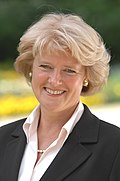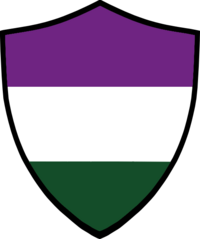2023 Autuzian legislative election: Difference between revisions
Tag: Undo |
|||
| (One intermediate revision by the same user not shown) | |||
Latest revision as of 12:22, 6 December 2023
| |||||||||||||||||||||||||||||||||||||||||||||||||||||||||||||||||||||||||||||||||||||||||||||||||||||||||||||||||||||
All 400 seats in the Tchambe 201 seats needed for a majority | |||||||||||||||||||||||||||||||||||||||||||||||||||||||||||||||||||||||||||||||||||||||||||||||||||||||||||||||||||||
|---|---|---|---|---|---|---|---|---|---|---|---|---|---|---|---|---|---|---|---|---|---|---|---|---|---|---|---|---|---|---|---|---|---|---|---|---|---|---|---|---|---|---|---|---|---|---|---|---|---|---|---|---|---|---|---|---|---|---|---|---|---|---|---|---|---|---|---|---|---|---|---|---|---|---|---|---|---|---|---|---|---|---|---|---|---|---|---|---|---|---|---|---|---|---|---|---|---|---|---|---|---|---|---|---|---|---|---|---|---|---|---|---|---|---|---|---|---|
| Opinion polls | |||||||||||||||||||||||||||||||||||||||||||||||||||||||||||||||||||||||||||||||||||||||||||||||||||||||||||||||||||||
| Registered | 9,227,590 | ||||||||||||||||||||||||||||||||||||||||||||||||||||||||||||||||||||||||||||||||||||||||||||||||||||||||||||||||||||
| Turnout | 77.81% ( | ||||||||||||||||||||||||||||||||||||||||||||||||||||||||||||||||||||||||||||||||||||||||||||||||||||||||||||||||||||
| |||||||||||||||||||||||||||||||||||||||||||||||||||||||||||||||||||||||||||||||||||||||||||||||||||||||||||||||||||||
| |||||||||||||||||||||||||||||||||||||||||||||||||||||||||||||||||||||||||||||||||||||||||||||||||||||||||||||||||||||
Legislative elections were held in Auzance on 23 January, 2023 for the Tchambe. The incumbent coalition, who had called the snap election amid legislative gridlock, received a vote of confidence. The councilist left-wing to far-left Labour received significant gains, as did the right-wing populist National Party, as well as the social-democratic centre-left to left-wing Centre, and the centre-right Solarian democratic Right Unity. The main opposition, the centre-left Liberal-Progressives, suffered their largest defeat since 2012, while the Greens lost most of their gains from the previous cycle, reducing their scale in the resultant coalition government. The pro-Euclean centrist Eastward Ho! party entered the Tchambe for the first time. Labour Prime Minister Catrene Burnot was therefore re-elected.
The Labour-led left-wing coalition went to the public seeking an increased mandate, however the election was also partially motivated by the increasingly terse relationship between the Communist-Left caucus and the Labour leadership. The appointment of far-left leader Andrêye Villiers in March 2022 saw the second-largest governing party take a turn to the left, and the reshuffle of April 2022 saw the Communist-Left cabinet members mostly coming from the most orthodox-councilist caucus. Months of increasingly fractious negotiations eventually saw a Communist-Left attempt to pass an unapproved law to restrict private enterprise resulting in a public split in the legislature, with the remainder of the coalition voting with the opposition against it. The rejection of this law in early October 2022 resulted in the mass resignation of Communist-Left from the incumbent coalition, and Prime Minister Burnot - rather than returning to negotiations - chose to dissolve the Tchambe through a legislative vote and call a legislative election to renew her mandate.
The electoral campaign saw the Liberal-Progressives campaign on a centrist political platform - rather than a centre-left one, as they had in the last three - and openly co-operate with pro-Euclean Eastward Ho! as well as Right Unity, who collectively sought to target the vulnerability and instability of the coalition government. Premier Houbêrt Louxhî was antipathetic to the Liberal-Progressive campaign, himself on the left of the party - unlike its legislature's leadership - and as a result, both major parties targeted one another's instabilities and factions as a major theme of the campaign. The National Party played on the increasing populism of surrounding countries, and aimed to reach disillusioned social conservatives or moderates who traditionally voted Labour but disapproved of the Burnot government's progressive social reforms, particularly on self-ID and the "legal third gender", as well as public doubts on Auzance's perceived geopolitical closeness to the Euclean Community.
The result of the election saw Labour perform unexpectedly well, after initial fears in the governing coalition that no grouping would gain a mandate or even that the Liberal-Progressives would form government for the first time since their defeat in 2012; Labour got 161 of 400 seats, having gained 23, and thus formed government quickly with the Greens and Centre Party. The National Party saw significant gains for the first time since the 2000s, while the Liberal-Progressives saw their poorest result in a decade, defying expectations of significant gains. Despite remaining in government, the Greens lost over half of their seats, while the Centre Party nearly doubled their vote share, becoming the new second-largest party in the government. The pro-Euclean Eastward Ho! entered parliament for the first time, joining the Liberal-Progressive grouping.
Background
The electoral situation in the runup to the snap election was perilous; although the Labour party had been in government since 2012 consistently, the election of a Liberal-Progressive Premier in July 2018, resignation of Thereze Astruc in November 2019, and the inconclusive nature of the 2020 legislative election in July of that year all left Catrene Burnot's power diminished and heavily dispersed. Burnot, having initially headed the Labour-Green coalition Astruc led before her departure, was forced to agree to a grand coalition of all parties left of the Autuzian centreground (from the centre-left leftward), which allowed a significant diversity of opinion within her government. Despite this instability, Auzance's economic growth had remained very high during the Labour party's tenures, and its governments were therefore afforded a degree of popularity that proved consistent in the 2010s.
The coalition remained relatively stable until March 2022, when Communist-Left appointed new leader Andrêye Villiers from the far-left Council Nation faction. Villiers lobbied the government for a reshuffle, in which Communist-Left's new appointees were primarily from the Council Nation, while sources inside the government continued to suggest the détente between the far-left and mainstream left had been lost following Villiers' election. In contrast to Villiers' radicalism, Burnot had become known for being a conciliator, particularly to the centre - as a result, the far-left began to threaten abstentions on major legislation, and a trickle of resignations began in the early autumn.
In October 2022, Villiers lodged a law into the Tchambe, aiming to constrict the legislation around private enterprise - the limit of employees was to be halved, while private corporation tax rates would raise to levels "deliberately unsustainable for the average capitalist enterprise", as stated by a Communist-Left spokesman, with the hope that Prime Minister Burnot would renege or compromise. Burnot did the opposite - the rest of the coalition was whipped against the law, and it was defeated by a supermajority with the opposition and most of the government united on its removal. Villiers was incensed by the breakdown of negotiations, and he - along with the vast majority, but not all, of Communist-Left Cabinet ministers - resigned from the Cabinet two mornings after; the government, as such, no longer had a majority, falling to 190 out of 400 seats.
Catrene Burnot, on the following day, passed a trigger vote through the Tchambe to call an election by a two-thirds majority, receiving near-total unanimity in calling such an election, with the date set for 23 January of the following year.
Electoral system
Auzance's Tchambe has 400 members. 150 members are elected directly by the first past the post system of voting, while 200 other members are elected - should a party's vote share exceed the threshold of 3% of total votes - in what Auzance's Electoral Commission calls "corrective proportional representation", whereby seats are awarded to parties in a way that gets the party's share of all 350 ministers as close to its vote share of all parties above the threshold as possible. 50 seats are apportioned as bonus seats, whereby the largest two parties share the fifty based on the proportion of their votes above 20% (e.g. a party with 30%, and a party with 25%, would share them two-to-one); should the second party not exceed 20%, the first party receives all fifty (as happened in this election).
All Autuzian permanent residents and citizens over the age of 16 on election day have the right to vote, and are automatically registered. Voters cast their ballot either in the polling station on a ballot card, by proxy (with strict regulations over the number of, and identity of, the voters whose vote is proxied), or by post. Voting machines are not used in Autuzian elections. Prisoners whose sentences, should no form of parole be afforded, end before the end of a fixed term following the election are allowed to vote, while those incarcerated in libeprijhons (open prisons) are always allowed to vote. As 23 January, 2023 was a Monday, the day was a national holiday as per the Constitution.
Political parties
In the Tchambe prior to the election, eight parties had representation.
| Name | Ideology | Position | Leader | 2020 seats | October 2022 seats | ||
|---|---|---|---|---|---|---|---|
| Votes (%) | Seats | ||||||
| Labour Parti del Labour |
Democratic socialism | Left-wing | Catrene Burnot | 29.3% | 138 / 400
|
139 / 400
| |
| Liberal-Progressive Liberal-Progrèssive |
Social liberalism | Centre to centre-left | Djeråd Bådwin | 24.2% | 102 / 400
|
100 / 400
| |
| National Party Parti Nåcional del Ôtuzance |
Right-wing populism | Right-wing to far-right | Rawoul Kinkin | 11% | 39 / 400
|
40 / 400
| |
| Communist-Left Communiste-Gåtche |
Council communism | Far-left | Andrêye Villiers | 9.3% | 33 / 400
|
34 / 400
| |
| Greens Les Verts |
Green socialism | Left-wing | Alècsis Raxhon | 8.2% | 29 / 400
|
27 / 400
| |
| Centre Party Centre |
Social democracy | Centre-left | Elwè Coëme | 6.5% | 23 / 400
|
24 / 400
| |
| Right Unity Unité del Droete |
Conservatism | Centre-right | Robiet Dwizink | 5.6% | 20 / 400
|
21 / 400
| |
| Radical-Liberal Radical-Liberal |
Classical liberalism | Centre to right-wing | Felisse Guiyåme | 4.5% | 16 / 400
|
14 / 400
| |
Campaign
The campaign was triggered in early December 2022, and ended on 23 January, 2023. Issues included the downfall of the coalition government, the politics of the far-left, economic record of the past decade and the relationship with the Euclean Community.
Debates
| Date | Organisers | Moderator(s) | P Present I Invitee S Surrogate NI Not invited | |||||||||
|---|---|---|---|---|---|---|---|---|---|---|---|---|
| PL | LP | PNÔ | CG | V | C | UR | RL | EH | Audience | |||
| 4 January | Evoyî | Andrêye Bietrand | P Burnot |
P Bådwin |
P Kinkin |
P Villiers |
P Raxhon |
P Coëme |
P Dwizink |
P Guiyåme |
P Darrieu | |
| 9 January | TVÔ 1 | Henri Willard | P Burnot |
P Bådwin |
P Kinkin |
P Villiers |
P Raxhon |
P Coëme |
P Dwizink |
P Guiyåme |
P Darrieu | |
| 13 January | Channel 2 | Estela Djoråd | P Burnot |
P Bådwin |
P Kinkin |
P Villiers |
P Raxhon |
P Coëme |
P Dwizink |
P Guiyåme |
P Darrieu | |
| 15 January | TVÔ 1 | Tchårle Vanole | P Burnot |
P Bådwin |
P Kinkin |
P Villiers |
P Raxhon |
P Coëme |
NI |
NI |
NI | |
| 17 January | Evoyî | Andrêye Bietrand | P Burnot |
P Bådwin |
P Kinkin |
P Villiers |
NI |
NI |
NI |
NI |
NI | |
| 20 January | TVÔ 1 | Tchårle Vanole | P Burnot |
P Bådwin |
NI |
NI |
NI |
NI |
NI |
NI |
NI | |
| 21 January | Channel 2 | Estela Djoråd | P Burnot |
P Bådwin |
P Kinkin |
P Villiers |
P Raxhon |
P Coëme |
P Dwizink |
NI |
NI | |
Endorsements
National daily newspapers
| Newspaper | Main endorsement | Secondary endorsement(s) | Notes | ||
|---|---|---|---|---|---|
| People's Daily | Communist-Left | Labour Party | Endorsed a Labour-led coalition with Communist-Left, and urged voters to back Communist-Left to force such a coalition. Some editors called for a Communist-Left minority government. | ||
| Evoyî | Centre | Labour Party | Supported a continuation of the Burnot government coalition, without Communist-Left, especially backing Centre. Evoyî was expected to endorse the Liberal-Progressives prior to this. | ||
| Greens | |||||
| The Euclean Observer | Eastward Ho! | Liberal-Progressive | Endorsed Eastward Ho! as the only party explicitly pro-EC membership; most editors backed a Liberal-Progressive led coalition. | ||
| Times of Cestiène | Labour Party | Centre | Endorsed the Labour government, and called for Prime Minister Burnot to "lock out" Communist-Left; some editors backed Centre. | ||
| The National | National Party | Right Unity | Mostly endorsed National Party, but some editors backed Right Unity. | ||
| The Examiner | Labour Party | Centre | Supported a continuation of the Burnot government coalition. Editors mostly backed the Times of Cestiène's call for Communist-Left to be locked out of government. | ||
| Greens | |||||
| The Here and Now | Liberal-Progressive | Eastward Ho! | Supported Liberal-Progressives and groups of "liberal or liberal-conservative pro-Eucleans" parties to form government. | ||
| Right Unity | |||||
| Radical-Liberal | |||||
Opinion polls
In the January 2023 election, polls initially suggested the Labour-led coalition minority would lose seats, however during the campaign both Labour and Centre increased heavily on the backs of losses by the Liberal-Progressives and Nationals. Polls varied quite widely during said campaign - one poll commissioned three days before the election predicted a nearly twenty-point lead for Labour, while one on the same day projected a three point lead.
The chart below shows opinion polls conducted for the January 2023 Autuzian legislative election. The trend lines are local regressions (LOESS).
Results
The election brought about an increased Labour plurality, and created a majority for the coalition even without Communist-Left participation. Despite this, there was considerable change between coalition partners - with the Greens losing half of their representation, and Centre more than doubling - while the Liberal-Progressives lost over a third of their own representatives, mostly to Labour, the Nationals and Centre, but also the upsurge of the pro-Euclean Eastward Ho!. Eastward Ho! brought about an upswell of support amongst both the Gaullican-speaking community, and some university students, as well as centrist young-middle-aged adults, and won a constituency in the capital's suburbs; this all came despite a modest reduction in support of joining the Euclean Community, which already was in the minority at its zenith in the late 2010s.
Labour being returned to power with significant gains, to the point that the reduced coalition now had a majority, was highly unexpected; polls as recent as New Year's - three weeks before the election itself - had put the Liberal-Progressives ahead, and even the exit poll proved too conservative a prediction for Labour. Catrene Burnot was returned with a greater mandate as a result of the election, and the Liberal-Progressive leader Djeråd Bådwin resigned on 28 January as a result of the large, widespread defeats suffered by his party. Furthermore, the election was viewed as a vote of confidence for the government's ongoing economic record.
The rise of populism across Euclea was somewhat evident in terms of the National Party's gains in this election, however the party remains significantly below its pre-2010 vote share; the sustained rise it saw partly as a result of the instability of the government crisis in autumn receded heavily during the campaign and the National Party recorded very modest gains to reach 50 seats (from 39 in 2020), an unexpected result after initial predictions that they could see as many as 80 seats. Some of the reasoning given behind this discrepancy from the rest of Euclea was that Auzance's economy was in relative prosperity, and the economic record of the Labour government was both expansionary and popular.
 | |||||
|---|---|---|---|---|---|
| Party | Votes | % | Seats | +/– | |
| Labour | 2,880,949 | 31.43 | 161 | +23 | |
| Liberal-Progressive | 1,744,974 | 19.04 | 67 | -35 | |
| National Party | 1,298,012 | 14.16 | 50 | +11 | |
| Centre Party | 977,572 | 10.66 | 37 | +14 | |
| Communist-Left | 661,712 | 7.22 | 25 | -8 | |
| Right Unity | 538,886 | 5.88 | 21 | +1 | |
| Eastward Ho! | 376,762 | 4.11 | 14 | New | |
| Greens | 353,495 | 3.86 | 13 | -16 | |
| Radical-Liberal | 305,823 | 3.34 | 12 | -4 | |
| Other | 28,372 | 0.31 | 0 | 0 | |
| Total | 9,166,557 | 100.00 | 400 | 0 | |
| Valid votes | 9,166,557 | 99.34 | |||
| Invalid/blank votes | 61,033 | 0.66 | |||
| Total votes | 9,227,590 | 100.00 | |||
| Registered voters/turnout | 9,227,590 | 100.00 | |||










